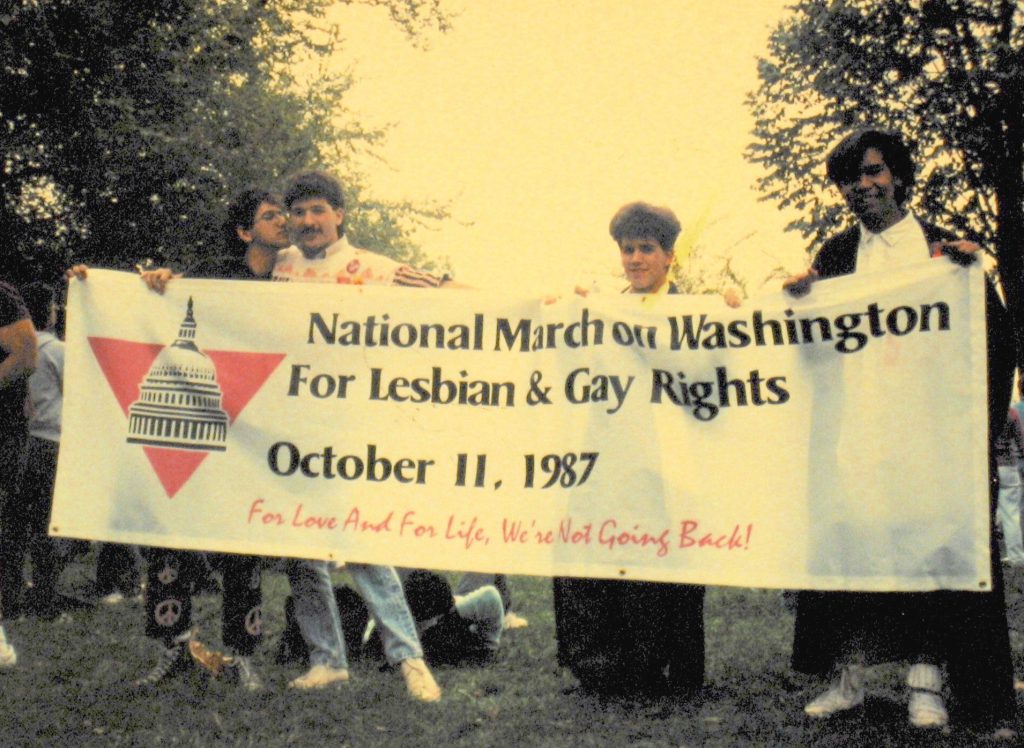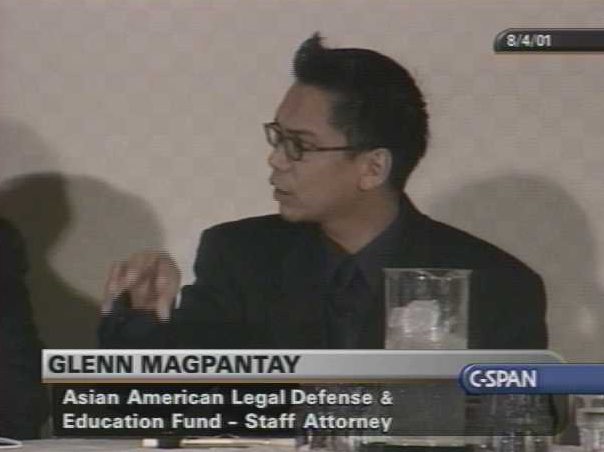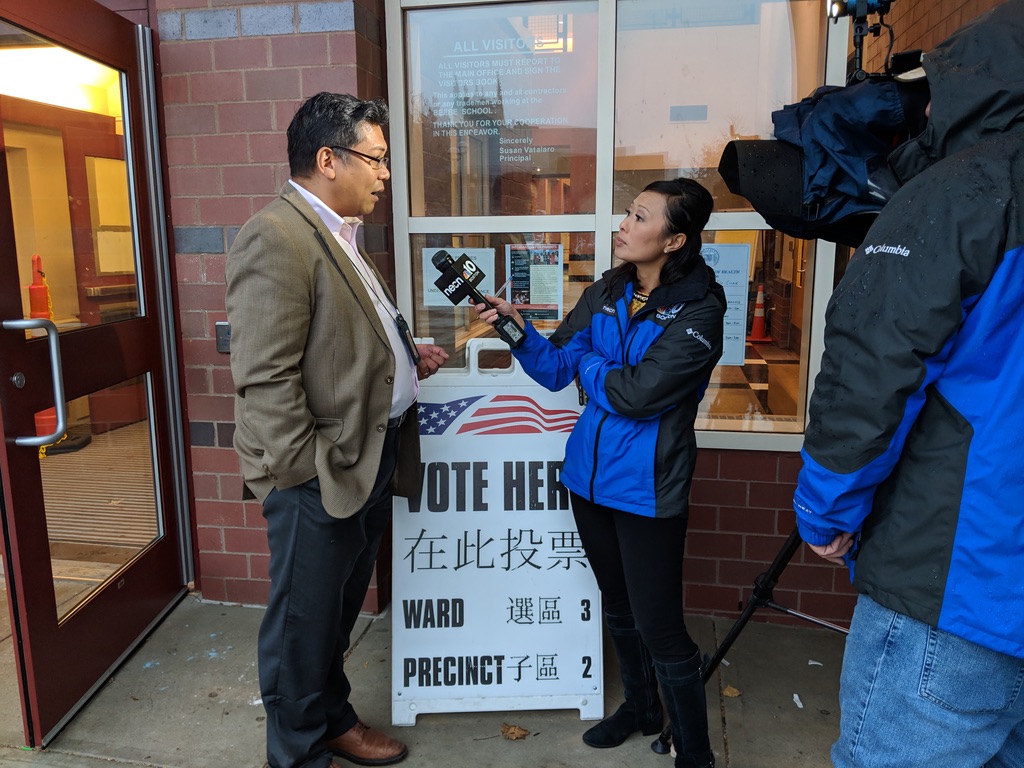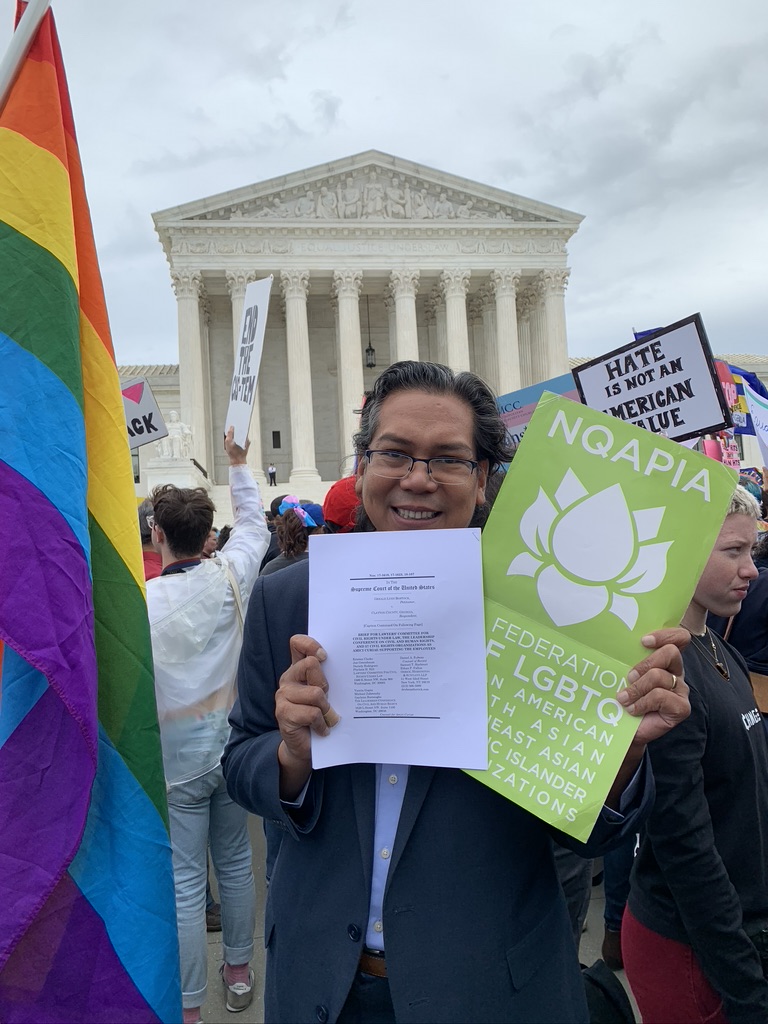Glenn D. Magpantay, a long-time civil rights attorney, advocate, and leader for Asian Pacific American (APA) and LGBTQ rights, is a 2020 recipient of the Daniel K. Inouye Trailblazer Award, NAPABA’s highest honor. Each year, outstanding lawyers are awarded for their exceptional leadership in paving the way for the advancement of other APA attorneys and creating lasting, substantial contributions in the broader APA community.
Glenn’s inspiring commitment to public service and activism started in college and continued after graduation when he was a lobbyist for higher education in the early 1990s. As one of the few Asian people working in the State Capitols at the time, Glenn learned the importance of APA and LGBTQ representation in law.
As a civil rights attorney at the Asian American Legal Defense and Education Fund (AALDEF), he quickly became an authority on the federal Voting Rights Act and expert on Asian American political participation. He fought for the right of Asian Americans to vote in their native language, to put in place translated registration forms and language interpreters at poll sites, and to challenge unconstitutional voter ID requirements in many cities.
At the cornerstone of Glenn’s incredible legal work and advocacy is intersectionality. In addition to working with several law firms on pro bono projects, he has recently led two challenges that reached the U.S. Supreme Court: Hawaii v. Trump (2018), which challenged President Trump’s anti-Muslim travel ban, and DHS v. Regents of the University of California (2020), which challenged President Trump’s proposed cancellation of the Deferred Action for Childhood Arrivals (DACA).
In a recent interview, Glenn reflected on how LGBTQ Asian attorneys have to navigate through a very traditional work environment where they often cannot express who they really are. In response to this, he has worked for over a decade to create a network for LGBTQ Asian attorneys to find peer support and thrive and advance in their careers. As Executive Director of the National Queer Asian Pacific Islander Alliance (NQAPIA), Glenn highlighted the often overlooked stories of LGBTQ Asians, trained a new generation of LGBTQ activists, and cultivated a more diverse face of the LGBTQ movement. And above all, Glenn knows that he could not have done this work without AABANY.
“Ever since I went to my first AABANY event in 1988, they have given me the trust and ability to create these spaces for LGBTQ APA attorneys,” Glenn said. “AABANY is my home because I’ve always felt valued, not just as a public interest lawyer, but also — and especially — as a colorful, openly gay attorney working in the name of Asian American civil rights.”
In addition to the many doors that AABANY has opened for Glenn, he also is incredibly thankful for the support he received from several law firms, such as Weil, Gotshal & Manges, Shearman & Sterling, and Skadden Arps. “I would not have been able to uphold and protect the Voting Rights Act without some of the biggest law firms in New York helping me with issue-spotting, fact-to-rule application, and their commitment to intersectional diversity and inclusion. And I would not have been able to sue New York City for bilingual voting rights without the help of six hundred lawyers from the New York Asian American bar in monitoring polling sites and recording anti-Asian voter disenfranchisement. ”
It’s a lifetime achievement award, but I’m not ready to retire. We have come a long way, but we have not yet come far enough.
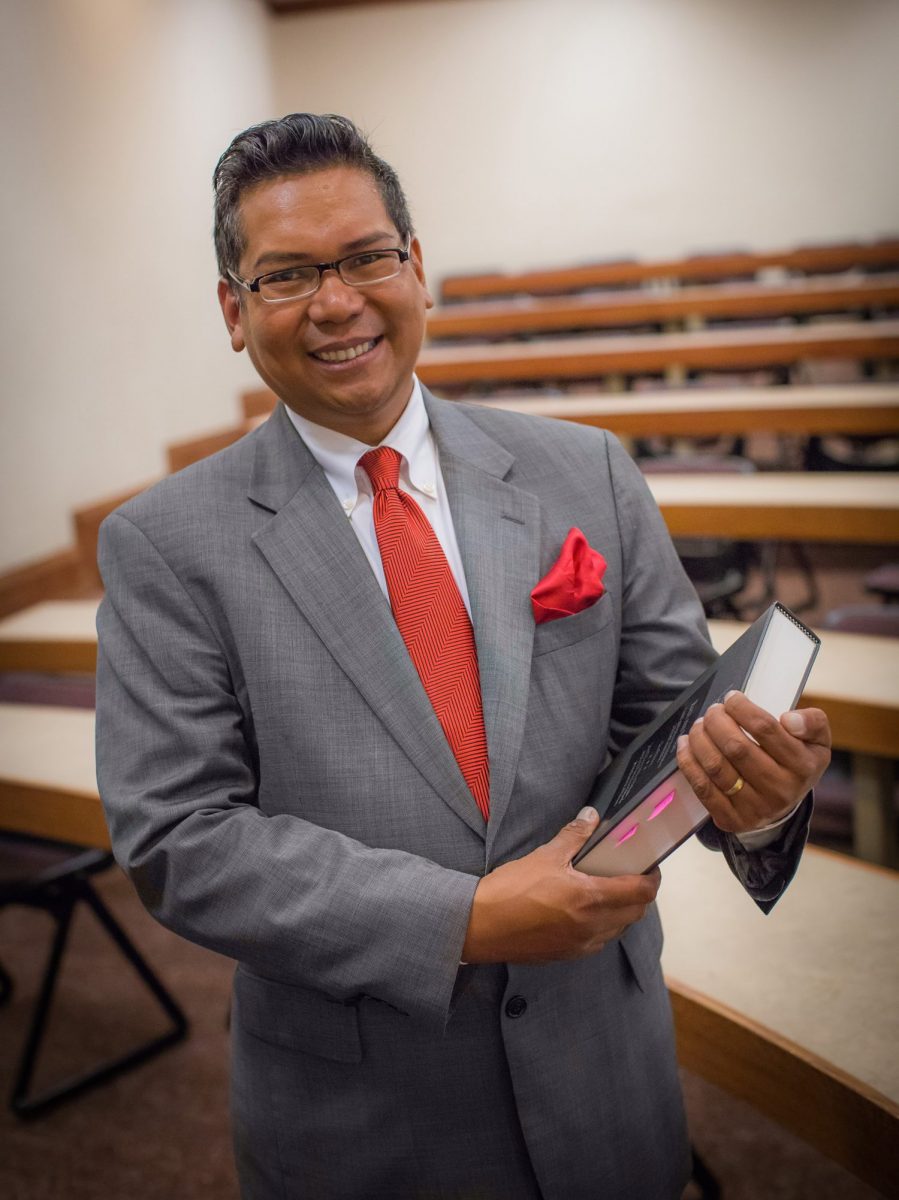
Glenn continues to teach and inspire legal minds by teaching legal studies and Asian American studies at Hunter College, Brooklyn Law School, and Columbia University, and his work is far from over.
“The goal was never for me to get an award; it was to change the profession to be more diverse and inclusive where we can achieve our fullest potential,” Glenn said. “It’s a lifetime achievement award, but I’m not ready to retire. We have come a long way, but we have not yet come far enough.”
Please join AABANY in congratulating Glenn on this well-deserved honor and recognition. NAPABA has announced on its website that the Award Ceremony will be held in December 2020. Additionally, NAPABA is honoring its awardees by featuring them on their social media accounts. To access the video on Glenn’s life and achievements, please visit the link below:


